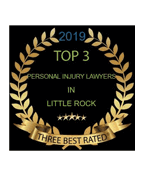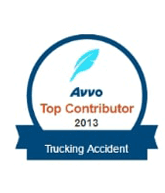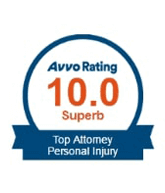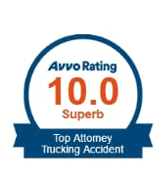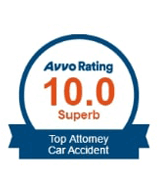Despite increasing awareness of road safety in Arkansas, preventable car accidents continue to happen. From speeding to distracted driving to driving under the influence, accident statistics show that people are injured and even killed on state roads nearly every day.
If you’ve been injured by a careless or negligent driver, you are entitled to seek compensation from their insurance provider (or your own, if they’re uninsured/underinsured and your auto policy includes uninsured-motorist coverage). This money is intended to cover accident-related expenses and damages such as:
- Medical expenses
- Future medical treatment
- Rehabilitation expenses
- Lost income
- Lost earning ability
- Pain and suffering
- Mental anguish
- Emotional distress
- Loss of consortium
- Loss of enjoyment of life
- Property damage
In practice, however, getting the financial recovery your case deserves can be challenging. Despite their promises of being there when you need them, large auto insurance companies like AIG, Allstate, and State Farm protect their bottom lines by paying as little compensation as possible to injured claimants. One report by the American Association for Justice even found that some insurers offer incentives like gift certificates to adjusters who meet low payment goals!
At the Levar Law Injury & Accident Lawyers, our Arkansas personal injury lawyers are committed to protecting your legal rights after a major car accident. For years, we have been helping injury victims navigate the complicated insurance claims process. To give you the knowledge and resources you need to get the compensation you deserve, we have put together this guide for dealing with insurance after an accident.
Dealing With Insurance Adjusters for the At-Fault Driver
Arkansas is an at-fault state when it comes to liability for car accidents, so if another driver is to blame for a collision, you will typically file a claim for damages with their insurer.
When the insurance adjuster calls you to get accident details, they’ll come across as sympathetic and concerned, but never forget that they will be looking for any opportunity to reduce your auto accident claim. To protect your right to maximum compensation, be polite but keep the following recommendations in mind.
Do Not Admit to Anything
Never admit to anything, even if you think you were partially at fault. A comment like “I’m sorry” can be interpreted to mean you take responsibility for the accident, while “I’m fine” may be presented as evidence that you’re not as injured as you claim.
Insurance adjusters are especially alert for any opportunity to assign blame to the claimant. Arkansas has a modified comparative negligence system, which prevents people who are more than 50 percent at fault from recovering damages for their accident injuries. If a claims adjuster can make a compelling case that your degree of responsibility is higher than 50 percent, they’re off the hook entirely, so don’t give them the ‘proof’ they need.
Do Not Submit a Recorded Statement
While you have a duty to cooperate with your own insurance carrier (more on that below), you do not have the same obligation to the insurance company of the at-fault driver. If an adjuster tries to get a recorded statement from you, don’t do it, as they will be looking for things they can use against you to reduce or deny your fair settlement.
Never record a statement without speaking with a car accident lawyer first. An experienced attorney will be able to determine whether giving a statement is in your best interests. If necessary, tell the claim adjuster, “I won’t make any statements before I speak to my lawyer.” If you already have legal representation, you can provide their contact information. If not, get the adjuster’s name and number and tell them your auto accident lawyer will be in touch.
Dealing With Insurance Adjusters for Your Own Provider
Some motorists fail to obey the law. If they hit another vehicle they may panic and flee the accident scene before you can get their proof of insurance or even note their license plate. Other drivers do not have insurance or don’t meet the minimum insurance requirements, which complicates personal injury claims.
Drivers in Arkansas should ensure that they carry uninsured motorist coverage (UM) for at least $25,000 in bodily injury liability. If you are injured in a hit and run or by an uninsured driver, you may be able to file a compensation claim under this coverage.
When it comes to dealing with auto insurance claims adjusters for your own insurer, your obligation is different. There is likely a clause in your auto insurance policy stating that you have a “duty to cooperate” with the insurer during the accident investigation. After you submit an insurance claim, your adjuster may ask you for financial statements, bank records, and tax returns. If you fail to comply with the adjuster’s requests, it may be construed as a violation of your policy, leading to your personal injury claim being denied.
While your obligation to your own insurer is greater, there are still measures you can take to protect your rights.
For example, it is common for insurance adjusters to request the victim’s medical records after an automobile accident. While they generally have the right to review relevant records, insurers are known for making overly broad requests, such as seeking access to your entire medical history. This is because they want to dig through your medical record for any reason to deny a given treatment as a ‘pre-existing condition.’ Do not sign a medical records release without first consulting an auto accident attorney.
Things to Be Wary of When Dealing with Insurance After an Accident
Quick Claim Settlement Offers
Sometimes it is relatively clear who is at fault in a car accident, so the insurance company may not contest liability. They may simply accept that their insured driver is to blame.
This is not necessarily good news for accident victims. When fault is not in dispute, insurance adjusters need to use other strategies to protect the interests of their company. This often means making a quick (and low) settlement offer to the injured party. The goal is to have you accept and end your insurance claim before you have time to realize the true value of your damages. This is why signing a settlement offer without obtaining legal advice first is rarely recommended.
Betterment Charges
The purpose of a car accident settlement is to fairly compensate injury victims for all losses they incurred in the collision. This includes your medical bills, lost wages, any future treatment costs, and the cost of repairing your vehicle to the highest standard.
The latter can sometimes result in a betterment charge. Betterment happens when repairing a vehicle causes its condition or value to improve. Perhaps certain components in your car were on their last legs before the accident and replaced with brand new ones that increased the overall value of the vehicle. Since insurance providers are only required to restore you to your pre-accident financial position, any improvement can result in your insurer asking you to pay the difference.
To challenge betterment charges in your property damage claim, you must prove that the parts will not add value to your car. Perhaps your car is so old that even with new components you cannot sell it for more money. This type of claim requires testimony from a mechanic or auto repair expert, which can be time-consuming for you to obtain. Your lawyer can obtain these types of witnesses when your case needs it.
When to Hire a Car Accident Attorney
You should hire a personal injury lawyer as soon as you know you have compensable damages. Until then, refrain from making any statement to a claims adjuster.
While some injured claimants attempt to handle their own case, the reality is that these damages can be difficult for someone without a personal injury background to calculate, and the insurance adjuster will focus on offering as little money as possible.
An Arkansas personal injury lawyer with years of experience in car accident claims knows how to assign a fair value to your damages. They will collect evidence such as your accident report, medical records, pay stubs, and car repair bills to prove the extent of your losses. If necessary, they may use accident reconstruction experts to help you prove liability. Should the insurance provider refuse to be reasonable during negotiations, your attorney can take your case to court to get the results you need.
What if Your Car Accident Claim is Denied?
There are times when legitimate insurance claims are denied. While this happens for a wide range of reasons, the most common include:
- Your insurance policy has expired
- You don’t have full coverage because you selected a liability plan instead
- You didn’t report the accident before the three-year statute of limitations expired
- There is a dispute over who is at fault
- You were believed to be under the influence of drugs or alcohol at the time of the accident
In some cases, an insurer simply acts in bad faith. This means that they are actively trying to renege on their obligation to pay valid claims. If this happens, you can take legal action against the company.
Regardless of the reason for your denial, an Arkansas car crash lawyer can help you put together a case that gives you the best chance of winning your appeal.
Dealing With Insurance After an Accident? Get a Free Consultation From a Car Accident Lawyer!
Working with an experienced car accident lawyer is the best way to protect your legal rights and financial interests after you’ve been injured. Your Arkansas personal injury attorney will fight to ensure that your claim is handled fairly by the insurance company.
At the Levar Law Injury & Accident Lawyers, we have extensive experience handling complex motor vehicle accident claims. When an insurer tries to deny you compensation or make you accept a lowball settlement offer, we have the skills and determination to hold them accountable. Before you speak to an insurance adjuster, please consult with our legal team. To schedule a free initial consultation, please call (479) 202-0027 or use our contact form. We represent clients from Little Rock, Arkadelphia, Texarkana, Conway, Hot Springs, and the surrounding areas.





